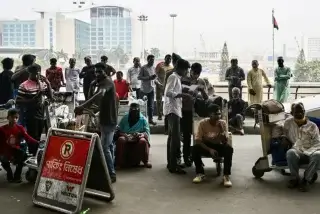Poland Tightens Visa Policies: Which Countries Face the Most Rejections?

In 2023, Poland received 124,057 visa applications, of which 18,564 were rejected, accounting for approximately 15% of the total applications. According to SchengenVisaInfo, the approval rate was 85%. However, applicants from certain countries faced higher rejection rates.
Countries with the highest rejection rates:
Angola: 65.63% of applications were rejected (529 out of 805 submitted).
Syria: 60.71% rejection rate (187 out of 308 applications).
Ethiopia: 54.98% rejection rate (331 out of 602 applications).
Peru: 51.35% rejection rate (38 out of 74 applications).
Brazil: 50% rejection rate (5 out of 10 applications).
Countries with the highest number of rejections:
Belarus: 4,097 rejections out of 35,550 applications (11.52%).
India: 2,288 rejections out of 11,954 applications.
China: 1,974 rejections out of 13,663 applications.
Algeria: 1,325 rejections out of 3,183 applications.
Turkey: 1,270 rejections out of 9,510 applications (13.35%).
Notably, nearly 60% of all rejections were issued to citizens of these five countries.
The high rejection rate for Angolan citizens may be linked to increased migration risks and insufficient documentation supporting the purpose of travel. In the case of Belarus, despite a relatively low rejection rate (11.52%), the high volume of applications resulted in a significant number of refusals.
These figures highlight the need for improved transparency and efficiency in Poland's visa issuance process. Recent scandals involving visa sales have uncovered serious violations, including instances where Polish consulates in Asia and Africa accepted substantial bribes for issuing work visas, contravening established regulations. One egregious example involved Indian farmers being granted visas under the pretense of participating in Bollywood film productions. Such misconduct undermines trust in Poland's visa system and necessitates substantial reforms to prevent future abuses.
Overall, despite a high general approval rate, applicants from certain countries face disproportionately high rejection rates. This disparity may stem from various factors, including political situations, migration risk assessments, and instances of corruption within the visa issuance process.








